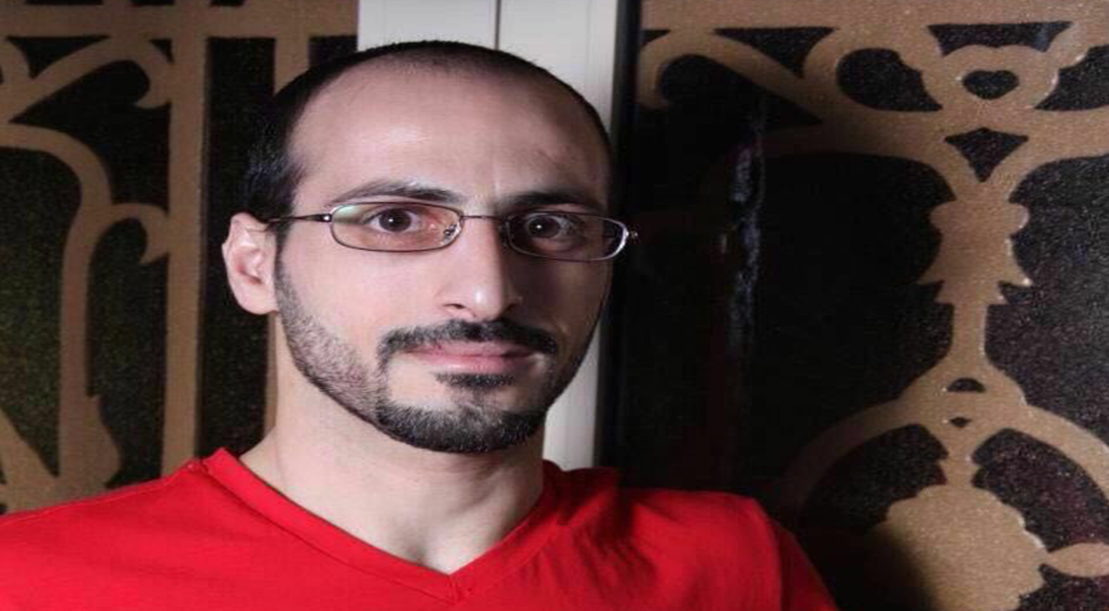Muhammad Bin Alawi Bin Jaafar AlShakhoori, a 34-year-old Saudi activist in the 2011 democratic movement in Qatif, was arrested without a warrant in 2017 at a checkpoint. He was then forcibly disappeared and tortured, and forced to sign a confession, which resulted in chronic pains and injuries. Muhammad was sentenced on various charges and sent to Mabahith Prison in Riyadh, where he remained arrested until 2017, and then was transferred to Al-Ha’ir prison in Riyadh, and after that, news was cut off, and he was not allowed to contact his family.
On 17 April 2017, Muhammad was arbitrarily arrested at one of the search checkpoints in Al-Awamiyah in Al-Qatif by the Eastern Province Police Forces who did not disclose the reason for arrest nor present an arrest warrant. After being disappeared for three days, his family came to know that he was arrested only when the entire neighborhood was surrounded by tanks and cars armed with machine guns to raid Muhammad’s house. The raid took place in Muhammad’s presence, while his hands and legs were chained. He was then taken to Mabahith Prison in the Eastern Province where he was allowed his first visit approximately between the seventh and eighth months of detention, and later authorities began to organize a monthly visit and weekly contact. After he was transferred to the Mabahith Prison in Riyadh, he was interrogated, prevented from visiting and contacting, and forcibly disappeared for three months. After he was transferred to Al-Ha’ir prison in Riyadh, there was no news about him for the first while, and then he was allowed to receive visits regularly until before the spread of the Corona pandemic in the country, which is when the Saudi regime took advantage of the epidemic to prevent visits and even to prevent contact for a period ranging from 3 months to 6 months, after which the visits were restricted to only 3 people, excluding his parents, under the pretext of their old age. The last visit with his family was on July 15, 2021.
During his investigation, Muhammad was tortured in both Mabahith Prison Eastern Province and Mabahith Prison Riyadh by the administration of the respective prisons for a duration of six months. Officers beat, kicked, and slapped Muhammad on his face, head, and sensitive areas. They subjected him to electric shocks, lashed him with curved electric wires, and forced him to stand with his arms raised for long hours. As a result of the torture, Muhammad lost his teeth and sustained bruising and pain in his back and ribs, as well as his legs, stomach, and kidneys. Despite the aforementioned injuries, he was denied access to a doctor for more than a year and was even denied medication after the doctor’s examination. Muhammad was forced to confess due to the torture he suffered, and his confession was later used to convict him in court despite it being taken under duress. Muhammad was unable to meet with his lawyer for the six months following his arrest.
On 21 February 2021, Muhammad was sentenced to death under judicial discretion and almost 80 years in prison on charges of joining an “armed terrorist group”, funding terrorism and terrorist activities, seeking to undermine the fabric of society and national cohesion, by participating in and promoting demonstrations and protests, training on the use of grenades, possessing weapons, and spreading material meant to undermine the public system. Various appeal sessions were held, last one of which was held on 2 August 2021, in which the judgment of a death sentence under judicial discretion was upheld, and the case was raised to the Supreme Court. Muhammed was subjected to fair trial violations as he was denied access to his lawyer and was not given adequate time and facilities to prepare for the trial. It is also important to note that the authorities have shown a pattern of targeting the AlShakhoori family as three members of Muhammad’s family are also at a high risk of execution due to their activism advocating for the respect of the rights of the Shia population in Saudi Arabia.
The Saudi authorities’ treatment of Muhammad, from his arbitrary arrest, his enforced disappearance, his torture, and his denial of fair trial rights, are all in contravention of the Universal Declaration of Human Rights (UDHR) and constitute violations of Saudi Arabia’s obligations under international treaties, namely the Convention against Torture and Other Cruel, Inhuman or Degrading Treatment or Punishment (CAT) which it is a party to. Such treatment also goes against the International Covenant on Civil and Political Rights (ICCPR), which although Saudi Arabia is not a party to, constitutes customary international law.
Therefore, ADHRB urges Saudi authorities to overturn Muhammad’s death sentence as it was reached through an unfair trial and with a forced confession. Furthermore, ADHRB calls on the Saudi authorities to investigate allegations of torture that Muhammad suffered and hold perpetrators accountable. Also, ADHRB urges the Saudi government to end its discrimination against and persecution of Shia human rights activists and their relatives.





